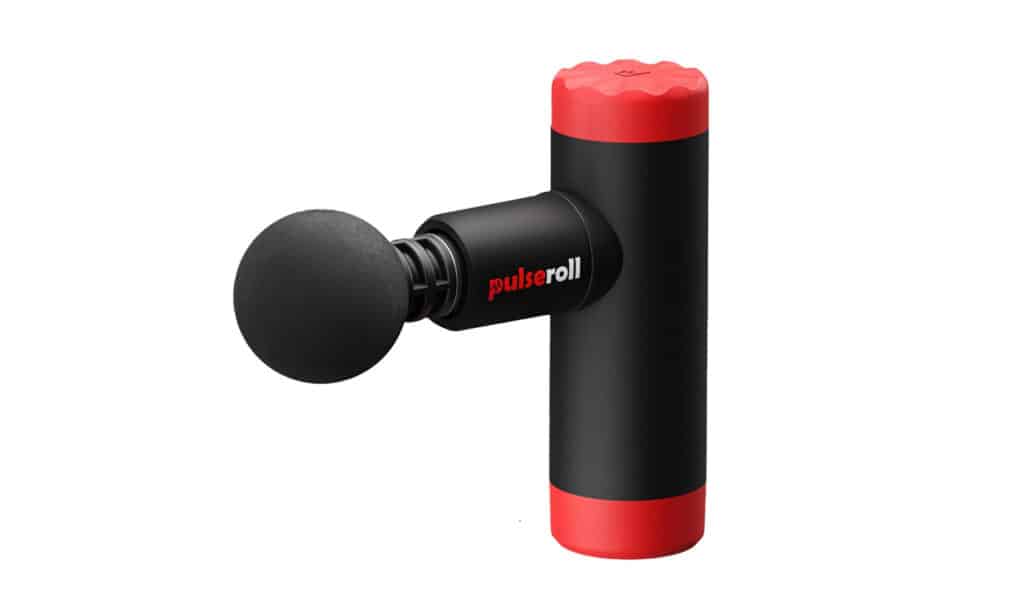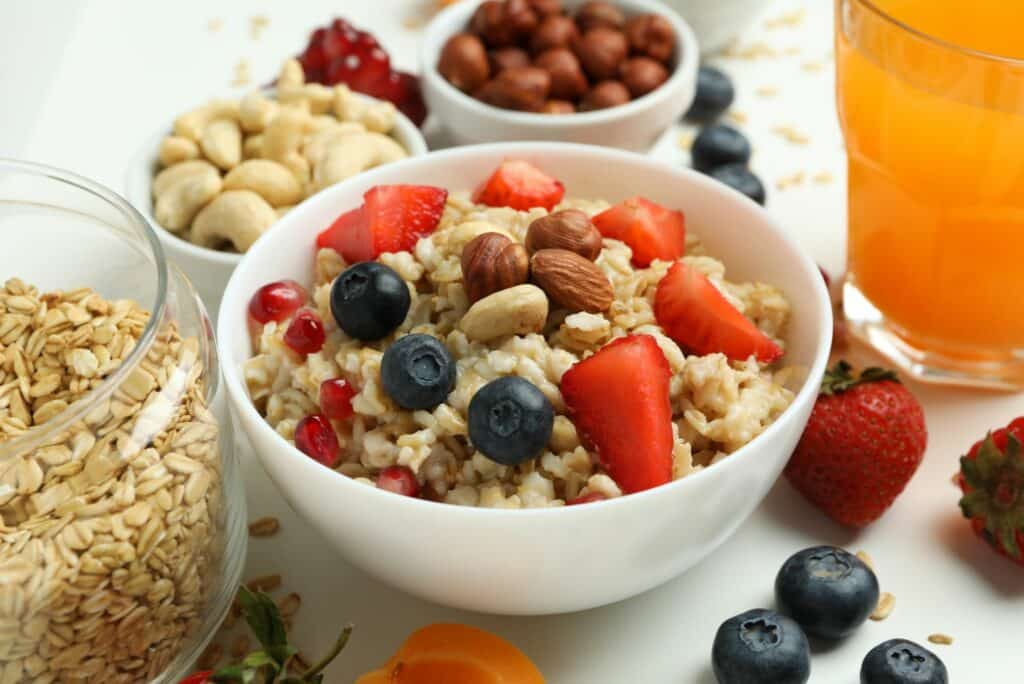


As numerous marathons draw near, there’s much buzz among runners about carb loading. But what exactly is it, and how should it be done? Carb loading, also known as carbohydrate loading, is a popular nutrition strategy used by long-distance runners and other endurance athletes. The concept behind carb loading is to increase the body’s glycogen stores in preparation for intense exercise, such as a big race or running a marathon.
Glycogen is the storage form of glucose, which is the body’s primary source of energy during exercise. By increasing glycogen stores, carb loading aims to ensure that the body has enough energy to sustain prolonged physical activity without depleting its energy reserves. Find why it’s important to understand carb loading for running a marathon.
Carb loading involves increasing your carb intake in the days leading up to a big race. This is typically done by reducing the intake of protein and fat, as these nutrients take longer to digest and can cause discomfort during exercise. Instead, eating more carbohydrates such as pasta, bread, rice and potatoes are consumed in larger amounts.
The recommended time frame for carb loading is 2-3 days before the marathon, with the highest carbohydrate intake on the day before the event. This allows enough time for glycogen stores to be replenished without causing gastrointestinal distress during the race.
Not all carbohydrates are created equal when it comes to carb loading. Simple sugars, found in sweets and sugary drinks, may provide a quick burst of energy but can also lead to crashing later on. Instead, complex carbohydrates are recommended as they store glycogen and provide sustained energy without spiking blood sugar levels.
Examples of complex carbs include whole-grain bread and pasta, brown rice, quinoa, sweet potatoes, and fruits like bananas and apples. These foods are also high in fibre, which can help regulate digestion and prevent bloating.
The concept of carb loading was first introduced in the 1960s by Swedish researchers who noticed that athletes who consumed a high-carb intake diet performed better in endurance events. Since then, numerous studies have confirmed the benefits of carb loading for long-distance running and other endurance activities.
However, it’s important to note that carb loading is not necessary for all types of physical activity. It is most beneficial for events lasting longer than 90 minutes, where the body’s glycogen stores can become depleted.
Carb loading can provide numerous benefits for long-distance runners, including:
Carbo-loading can be a useful nutrition strategy for long-distance runners and other endurance athletes. Increasing carb intake and glycogen stores can help improve performance, prevent hitting the wall, increase endurance and aid in post-exercise recovery. It’s important to remember to choose complex carbohydrates and start carb loading 2-3 days before the event for optimal results.
In addition to the benefits mentioned above, carbo-loading can also provide a mental boost for runners. Knowing that your body is well-fueled with energy can help alleviate any pre-race jitters and instil confidence in your ability to complete the marathon.
It’s also essential to continue consuming carbohydrates during the race itself, particularly in the later stages when glycogen stores may start to become depleted. Energy gels, sports drinks, or other easily digestible forms of carbohydrates can be used.
Overall, carb loading is a tried and true nutrition strategy for long-distance runners, and when done correctly, can make a significant difference in performance on race day. So next time you’re preparing for a marathon, don’t underestimate the power of carb loading.
The recommended time frame for a carb loading period is 2-3 days before the marathon during your taper week. This allows enough time for muscle glycogen stores to be replenished without causing gastrointestinal distress during the race. The highest carbohydrate intake should occur on the day before the event.
The general recommendation is to consume 7-10 grams of carbohydrates per kilogram of body weight during the carb loading phase to properly carb load. For example, a 70kg runner would aim to consume approximately 490-700 grams of carbohydrates per day to build their carb stores. However, this may vary depending on individual factors such as training intensity and duration.
It’s also essential to listen to your body and adjust accordingly. If you feel like you have had too much carbohydrate and feel overly full or bloated, it may be necessary to reduce your carbohydrate intake slightly. On the other hand, if you feel fatigued or sluggish, it may be beneficial to increase your intake and take on more carbs.
As mentioned earlier, a high carbohydrate diet full of complex carbohydrates such as wheat bread and pasta, brown rice, quinoa, sweet potatoes, and fruits like bananas and apples are recommended for carb loading. It’s also important to choose foods that are familiar to your body and easily digestible.
High-fat or high-protein foods should be avoided during the carb-loading phase as they can slow down digestion and interfere with the uptake of carbohydrates. It’s also essential to stay hydrated and consume electrolytes to maintain proper hydration levels during carb loading.

It’s best to start carb loading 2-3 days before the race, which means planning meals and snacks accordingly. Aim to consume a carbohydrate-rich meal or snack every 2-3 hours, with a total of 7-10 grams per kilogram of body weight spread out over the day.
Some examples of meals and snacks that can fit into this plan include:
Remember to choose complex carbohydrates rather than simple sugars to avoid blood sugar spikes and crashes. And don’t forget to stay hydrated throughout the day!
The general recommendation is to start carb loading 2-3 days before the race. However, it’s also essential to listen to your body and adjust accordingly. If you feel like you need more or less time, don’t hesitate to make changes to your plan.
It’s also important to note that carb loading should not be done for every training run leading up to the marathon. It is a specific and strategic nutrition plan for the days leading up to a long-distance event, not an everyday diet.
The day before the marathon is when high carbohydrate intake should be at its peak. This means taking on more carbs and consuming a carbohydrate-rich breakfast, lunch, and dinner, with snacks in between as needed.
It’s also essential to focus on easily digestible foods to avoid any gastrointestinal distress during the race. Some examples of meals and snacks that can fit into this carbo load plan include:
Remember to continue staying hydrated throughout the day and avoid high-fat or high-protein foods.
Carb loading doesn’t just stop at the start line. It’s important to continue consuming carbohydrates during the marathon to maintain energy levels and prevent glycogen depletion. The recommendation is to consume 30-60 grams of carbohydrates per hour, depending on individual factors such as body weight and intensity of exercise.
Energy gels, sports drinks, or other easily digestible forms of carbohydrates are recommended for quick and convenient fuel during the race. It’s also important to continue staying hydrated and consuming electrolytes to maintain proper hydration levels.
One common misconception about carb loading is that it leads to weight gain. However, carb loading is focused on increasing muscle glycogen stores rather than fat storage.
Glycogen is the primary source of fuel for muscles during exercise, and having a sufficient supply can help improve performance and delay fatigue. Any excess carbohydrates consumed during the carb loading phase will be used to replenish glycogen stores, not stored as fat.
While carb loading is generally recommended for long-distance events like marathons, it may not be necessary for shorter races. This is because the body has enough stored glycogen to sustain shorter efforts.
However, it’s still essential to consume a carbohydrate-rich meal or snack before any race to ensure your body has adequate fuel for optimal performance.
It’s generally recommended to start carb loading 2-3 days before a race, especially for longer-distance events like marathons. However, it’s essential to listen to your body and adjust accordingly. If you feel like you need more or less time, don’t hesitate to make changes to your plan.
It’s also important to note that carb loading is not necessary for every race. It is a specific and strategic nutrition plan for longer, more intense events and may not be necessary for shorter races.
Ultimately, it’s crucial to experiment with carb loading during training runs leading up to your goal race to see what works best for your body. This will help you determine the ideal timing and amount of carbohydrates needed to fuel your performance on race day.
Carb loading is generally not necessary for shorter races like a 5k. However, it’s still important to consume a carbohydrate-rich meal or snack before the race to ensure your body has enough fuel for optimal performance. The focus should be on consuming easily digestible foods and staying hydrated rather than carb loading specifically. Ultimately, it’s essential to listen to your body and experiment with nutrition during training runs to see what works best for you.
No, carb loading is not a weight loss strategy. It’s a specific nutrition plan for athletes to optimise performance during long-distance events. Consuming excess carbohydrates during this time may lead to temporary weight gain due to increased glycogen stores, but it is not a sustainable or healthy approach to weight loss. It’s important to focus on balanced and nourishing meals throughout training and not rely on carb loading for weight loss. Overall, the goal of carb loading is to enhance performance and energy levels, not necessarily lose weight.
Carb loading is a strategic nutrition plan that can help improve performance and delay fatigue during long-distance events like marathons. By increasing your intake of complex carbohydrates leading up to race day, you can stock up on muscle glycogen for optimal fueling. Remember to choose easily digestible and familiar foods, stay hydrated, and adjust accordingly based on your body’s needs.
Carb loading isn’t just for the start line. During a marathon, it’s crucial to keep up your carbohydrate intake to sustain energy and prevent glycogen depletion. Aim for 30-60 grams of carbs per hour, adjusted based on factors like body weight and exercise intensity.
For a quick energy boost during the race, opt for energy gels, sports drinks, or other easily digestible carb sources, these can all be purchased at Decathlon. Remember to stay hydrated and consume electrolytes to maintain optimal fluid balance.
With the right carb-loading plan, you can confidently tackle your next marathon and achieve your goals. So stock up on those carbs today and crush that finish line!
Ready for a speedy marathon challenge? Take a read of our 4 hour pace marathon blog.
Join our mailing list to stay up to date with the latest UK running events, training tips, and exclusive offers on running products. Rest assured, we value your privacy and would never dream of selling your address. Sign up now…
Share this article
A heart rate zone calculator for runners is vital for optimising your training intensity. It...
Hi Mike, what strategies can I use to fuel my marathon training effectively while keeping...
Designed by our head coach, Mike Gratton, winner of the 1983 London Marathon, this 8-week...
Runners are no strangers to muscle soreness, stiffness and tightness. The repetitive nature of running...
The benefits of our 24-week marathon training plan Look no further if you’re looking for...
We’re here to make sure you’re up-to-date with the latest running tips, events and product discounts – we’ve always got your back! Rest assured, we value your privacy and would never dream of selling your address.
BONUS: Sign up today and receive a FREE code for our Sub-4-Hour Marathon Plan
Your privacy settings
Manage Consent Preferences
Necessary
Analytics
Embedded Videos
Marketing
Facebook Advanced Matching
Facebook CAPI